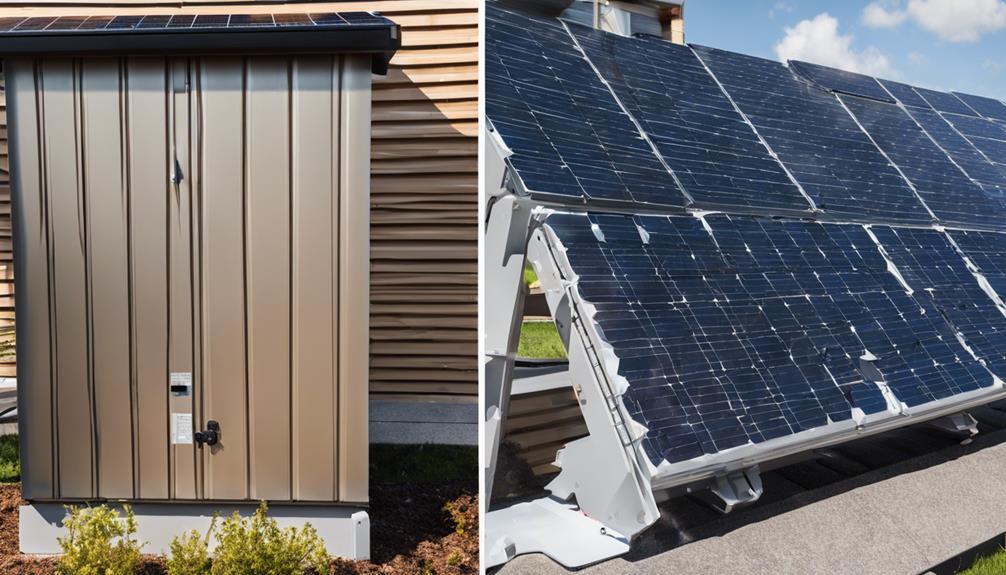
Understanding Solar Panels: An Overview
Solar panels are increasingly being adopted as a renewable energy source, harnessing sunlight to generate electricity. They are composed of photovoltaic cells that convert sunlight into usable energy. As more households and businesses turn to solar energy, questions about the safety and health implications of solar panels arise. Do solar panels have health risks? This article will explore various aspects of solar panel technology, the potential health risks, and the overall safety of using solar energy.
The Science Behind Solar Panels
To understand whether solar panels have health risks, it’s essential to know how they work. Solar panels are primarily made of silicon, a widely abundant element. When sunlight hits the photovoltaic cells, it creates an electric field that generates electricity. This process does not produce greenhouse gases or direct pollutants, making solar energy a clean alternative to fossil fuels. However, concerns have been raised about the materials used in solar panels, including cadmium and lead, and whether exposure to these substances poses any health risks.
Potential Health Risks from Materials Used in Solar Panels
One of the primary concerns about solar panels is the materials involved in their production. Some types of solar panels, particularly thin-film panels, use cadmium, a toxic heavy metal. Prolonged exposure to cadmium can lead to serious health issues, including kidney damage and bone fragility. Similarly, certain types of panels may contain lead, which can be harmful, especially to children and pregnant women. However, it’s important to note that the risk of exposure from properly installed and maintained solar panels is minimal. Manufacturers are also working to reduce the use of these materials in favor of safer alternatives.
Installation and Maintenance: Ensuring Safety
Proper installation and maintenance of solar panels are crucial in mitigating any potential health risks. Homeowners should hire certified professionals for installation to ensure that the panels are set up correctly and safely. Regular maintenance checks can also help identify any issues that may arise, such as leaks or damage that could expose harmful materials. By adhering to safety protocols during installation and maintenance, the risk of health hazards associated with solar panels significantly decreases.
Electromagnetic Fields: Are They a Concern?
Another area of concern when discussing whether solar panels have health risks is the exposure to electromagnetic fields (EMFs). Solar panels generate a small amount of EMFs during operation, similar to other household appliances. Research on the health effects of EMFs is ongoing, but current studies have not found conclusive evidence linking low-level EMF exposure to serious health issues. The levels of EMFs emitted by solar panels are generally much lower than those from everyday devices such as cell phones and microwaves, making them relatively safe.
Comparing Risks: Solar Energy vs. Fossil Fuels
When evaluating the health risks associated with solar panels, it’s essential to compare them to the risks posed by traditional fossil fuel energy sources. Fossil fuel combustion releases harmful pollutants into the air, contributing to respiratory diseases, cardiovascular problems, and other health issues. In contrast, solar energy production does not emit pollutants during operation. While there are some health risks associated with the materials used in solar panels, the overall public health benefits of transitioning to renewable energy sources like solar far outweigh these concerns.
Environmental Impact and Public Health
The environmental impact of solar energy also plays a crucial role in public health. By reducing reliance on fossil fuels, solar energy can help decrease air pollution and its associated health risks. Cleaner air translates to fewer instances of asthma, lung diseases, and other health conditions linked to poor air quality. Additionally, solar energy contributes to mitigating climate change, which poses significant long-term health risks to global populations. In this context, the potential health risks of solar panels seem minimal compared to the public health benefits of cleaner air and reduced greenhouse gas emissions.
The Future of Solar Technology and Health Safety
As technology advances, the solar industry continues to evolve in terms of safety and efficiency. Researchers are developing alternative materials for solar panels that minimize health risks, such as organic photovoltaics and perovskite solar cells. These innovations promise to reduce hazardous materials while maintaining or even enhancing energy efficiency. Additionally, stricter regulations and industry standards are being implemented to ensure that solar panels are produced and disposed of safely, further reducing potential health risks.
Conclusion: Weighing the Risks and Benefits
In conclusion, the question “do solar panels have health risks?” can be answered with a nuanced perspective. While there are some risks associated with the materials used in solar panels, the overall benefits of solar energy in terms of environmental impact and public health are substantial. By ensuring proper installation and maintenance, homeowners can mitigate potential health risks. As technology continues to advance, solar energy will likely become even safer and more effective. Transitioning to solar not only supports a sustainable future but also promotes a healthier environment for all.





